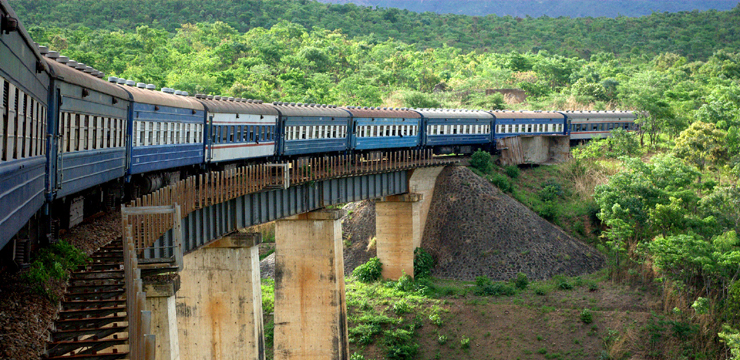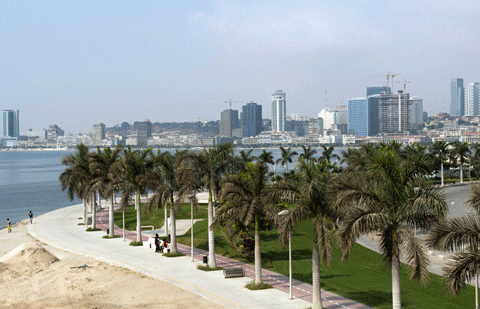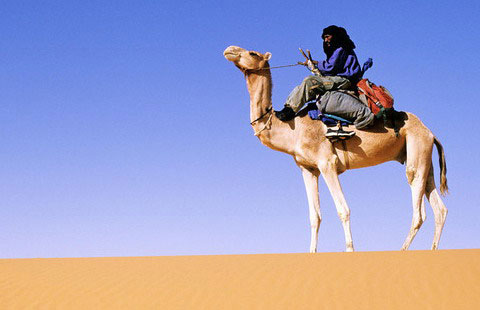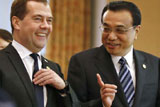Power of resonance
Updated: 2014-04-18 09:46
By Bob Wekesa (China Daily Africa)
Comments Print Mail Large Medium Small
Chinese Dream can provide valuable lessons for Africa as it seeks to fulfill its aspirations
The Chinese Dream put forth by President Xi Jinping has captured the hearts and minds of people in China, and to a large extent in Africa. The fervor to embrace the Chinese Dream is understandable, as it seeks to provide a life of prosperity for people in which they can become whatever they choose to be.
The Chinese Dream is perhaps the most relevant in Africa as it seeks new ways to empower people after several years of socio-economic underdevelopment. It is also interesting to note that the Chinese Dream seeks to build on the achievements of the earlier generations of Chinese leaders. There is also a historical trajectory on the implications of the Chinese Dream on the African continent.
Chairman Mao Zedong and his compatriots, notably premier Zhou Enlai laid the foundation for modern China in much the same way African leaders such as Jomo Kenyatta of Kenya, Kwame Nkurumah of Ghana, Mwalimu Julius Nyerere of Tanzania, Sam Nujoma of Namibia, Patrice Lumumba of the Democratic Republic of Congo and Milton Obote in Uganda saw off colonialism and instituted self rule. To appreciate the confluence of the Chinese Dream and African aspirations along the same lines, one needs to go back in time and look at how the liberation struggles in China and in Africa have panned out.
One perspective that history has recorded is that China contributed to the liberation struggle in several African countries in the understanding that both regions had undergone more or less similar experiences under variants of European colonialism and imperialism. Thus the antecedents of the Chinese Dream and what it portends for Africa - as natural global south allies - should be traced to the 1950s through to 1990 when the last African country - South Africa - was liberated.

Deng Xiaoping's well-known dictum of a "good cat being the one that catches mice regardless of whether it's black or white" aptly captured China's experimentation with sweeping reforms. Dubbed socialism with Chinese characteristics, the market-oriented theories and policies lifted millions of Chinese people from poverty and put the world's most populous nation on course to be a global economic giant.
Unfortunately the period when the Chinese people were achieving their economic aspiration is also the period when most, if not all, African countries were facing huge economic challenges arising out of the failed so-called Washington Consensus policies. Thus, while the ground was being forged throughout the 1980s and 1990s for the Chinese Dream to gain traction in the second decade of the 21st century, African people were facing the nightmares of civil wars and economic underdevelopment.
The mid-1990s saw China's increasing confidence not only at home but also abroad as an emerging power - on all fronts. One can say that in the 1990s, China was keen to craft a new relationship with Africa, based on historical solidarity but also introducing what has come to be called win-win and mutual benefit relations.
In this new approach, the aspirations of Chinese and African people would be based more on leveraging each other's comparative advantages than just ideological considerations.
It must not be forgotten that in the 1990s when China started crafting an African strategy, Africa's traditional partners from the West had slowly started leaving Africa. The US and European nations regarded Africa as over-populated and filled with basket case nations that needed to be avoided.
China, on the other hand, saw a quid pro quo opportunity for advancement. In addition, China had achieved several impressive milestones that could serve as examples for African countries desperate for models and partnerships that could work. If dreams are about upward looking visions, many an African country were prepared to start understanding how China had galloped forward in an amazingly short period of time.
One of former Chinese president Jiang Zemin's last acts on the China-Africa collective aspirations front was the establishment of the Forum on China Africa Cooperation in 2000. Thenceforth, Africa could not only have an alternative across geopolitical, economic and social organization considerations, but more importantly, have China as trading partner and source of much needed investments.
The early years of the 21st century saw many Africans beginning to dream about better livelihoods. Former South African president Thabo Mbeki even coined the phrase "African renaissance" as an encapsulation of the potential for Africans to rise above the poverty that had afflicted them. This resonated well with the new-found collective futuristic ambitions that the China-Africa cooperation forum portended.
Zimbabwean President Robert Mugabe - for all the flak he has taken for his anti-West stance - went as far as to coin the "Look East" mantra, one that has indeed entered the international relations arena.
From the above, one can argue that the Chinese Dream concept is not necessarily a new one as indeed the Chinese have over the years experimented with several models of development that are uniquely theirs.
The Communist Party of China and the Chinese state have all along sought close ties with their African counterparts. This is in itself a push for shared ambitions as the two regions attempt to climb the ladder onto levels of livelihoods largely taken for granted in the rich nations of the world. China remains a developing country, but also a leader in terms of moving toward a developed economy.
With African nations dominating the economic growth rates in recent years, Africans see China as a nation to be emulated in ways different from the way they would look at say the US or countries in Western Europe. The rising Africa or Africa as an awakening giant story has striking semblances with that of China two decades ago when citizens could see their lives changing for the better in their own lifetimes.
The rosy picture painted of an Africa that would soon be a region free of "less-than-a dollar-a-day" impoverishment should however be tempered with sobering realism. From the Cape to the Mediterranean, many people in villages and informal urban settlements still face untold difficulties.
The author is a PhD candidate at the Communication University of China in Beijing and research associate at the University of Witwatersrand, Johannesburg, South Africa.
(China Daily Africa Weekly 04/18/2014 page11)







